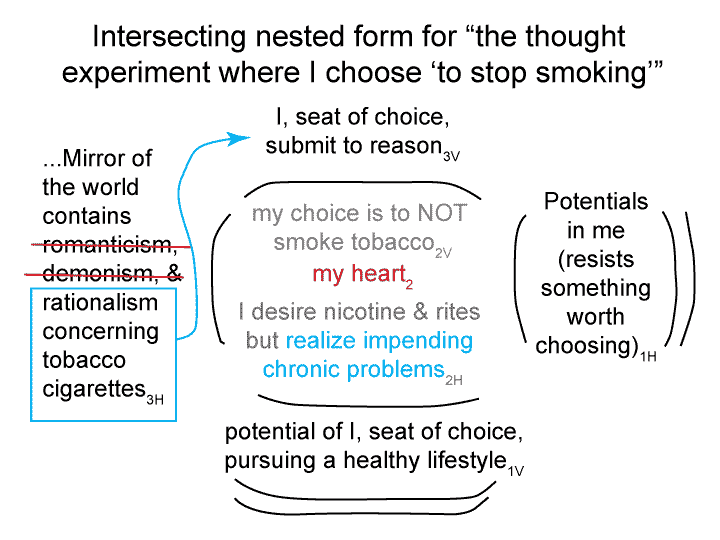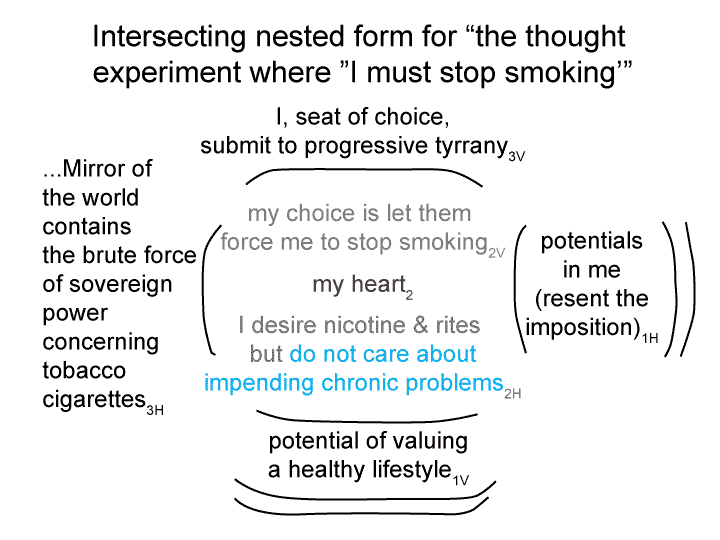Summary of text [comment] page 83
[How would true conversion work in this example?
The health claims in the mirror of the world3H are rational. They contrast with what I desire1H. Yet, they adhere to my choice2V, because value1V is rational. As a result, I can envision my not smoking3V addressing a potential value1V, even though my habit2H continues to light up.
My choice2V to light up may come from the potential of something itself. I may value a ritual halt to negative thought sequences1V.
Lighting up originally connected to a potential inherent in me1a (in the interscoping form) and still does, but not so exclusively.
I am becoming more reasonable1V.]


